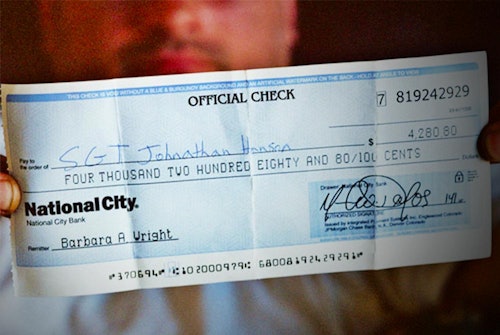- Common Types of Insurance Scams Targeting Seniors
- Red Flags to Look Out For
- Tips for Avoiding Insurance Scams
- How to Report Insurance Scams
We all know that scams are an unfortunate part of our modern world, and it's no secret that seniors are often targeted. Unfortunately, as our older population grows, so does their vulnerability to these insidious tactics. That's why seniors and their loved ones must stay informed and learn how to spot the warning signs.
So, let's talk about why it's essential to be aware of the latest insurance scams targeting seniors. When we know what to look out for, we're better equipped to avoid falling into the traps set by dishonest scammers. Our goal is to spread awareness and encourage everyone to be extra vigilant.
We'll step into the world of insurance scams aimed at seniors, shedding light on the sneaky tricks fraudsters use. We'll cover different types of scams, pinpoint red flags, and share helpful tips to keep you and your loved ones safe from such threats. With this knowledge, seniors can secure their financial well-being and enjoy greater peace of mind.
Common Types of Insurance Scams Targeting Seniors
It's no surprise that scammers have devised various schemes to prey on unsuspecting seniors. To better protect yourself or your loved ones, it's essential to be aware of the most common insurance scams targeting seniors.
Let's take a look at different forms of fraud, from health insurance and life insurance to annuities, investments, and even auto insurance, so you'll be better prepared to spot the red flags and avoid falling victim to these devious tactics.
Health Insurance Scams
It's common to receive a call from someone trying to sell insurance to you, especially during open enrollment, but there are other scams to be aware of too.
Medicare scams
As a senior, you may have encountered people offering "free" medical services or equipment, only to discover later that they've billed Medicare on your behalf. These scammers often target seniors, using their Medicare information to submit fraudulent claims.
Prescription Drug Scams
Be cautious of anyone offering discounted prescription drugs, especially if they're reaching out unsolicited—even if they claim to be from a legitimate insurance company. These scams can involve counterfeit medications or identity theft, which can have serious consequences for seniors.
Life Insurance Frauds
Scammers specifically target seniors when it comes to life insurance fraud.
Fake Policy Scams
Sometimes, scammers pose as insurance agents and sell bogus life insurance policies to unsuspecting older adults. They may even forge documents to make the policies appear legitimate. Always verify the agent's credentials and the policy's legitimacy before purchasing.
Churning
Churning is when an unscrupulous agent convinces you to cash in an existing life insurance policy and use the funds to purchase a new, supposedly better policy. In reality, the new policy may have higher fees or inferior benefits while the agent profits from the commissions.
Annuity and Investment Fraud
Investment scams can target anyone, but these fraudsters target seniors assuming that they are easy targets.
Unsuitable Product Sales
Beware of salespeople pushing annuities or investments that don't align with your financial goals or risk tolerance. These individuals may be more interested in earning commissions than in helping you secure your financial future.
Ponzi Schemes
Ponzi schemes are fraudulent investment operations where a scam artist promises high returns with little to no risk. In reality, the returns are paid using new investors' funds rather than legitimate company profits. These schemes eventually collapse, leaving seniors with significant financial losses.
Auto Insurance Fraud
Seniors are often an easy target when it comes to auto insurance fraud, especially when it comes to staged accidents.
Staged Accidents
Some fraudsters intentionally cause auto accidents, making it appear that the senior driver is at fault. They then file an inflated insurance claim or fake injury reports, increasing insurance premiums for the unsuspecting senior.
Fake Repair Shops
Scammers may also pose as auto repair shop employees, convincing seniors that their vehicles need unnecessary or overpriced repairs. Always research repair shops and get a second opinion before committing to costly repairs.
Red Flags to Look Out For
There are several signs of insurance fraud and insurance scams to look out for. Education is key—let the older adults in your life know about these scams and what to do if a pushy or phony insurance agent approaches them.
High-Pressure Sales Tactics
Scammers often try to rush seniors into making decisions by creating a false sense of urgency. Be wary of anyone pressuring you to act quickly or make immediate decisions without time to think or consult with others.
Unrequested Contact
Unsolicited phone calls, emails, or mailings from unknown insurance agents or companies should raise suspicion. Scammers often use these methods to initiate contact with potential victims.
Too-Good-to-Be-True Offers
If an insurance offer seems too good to be true, it probably is. Be cautious of deals with exceptionally low premiums, high returns, or unrealistic guarantees.
Requests for Personal Information
Scammers may ask for sensitive personal information, such as your Social Security number, Medicare number, or banking details. Never provide this information to anyone you haven't verified as trustworthy. These are usually part of financial scams that steal money directly from your bank account.
Inconsistencies in Communication and Documentation
Watch for discrepancies in policy documents, contracts, or correspondence. These inconsistencies may indicate a scam. Always review paperwork carefully and ask questions if something seems unclear or suspicious.
Lack of Proper Licensing and Credentials
Ensure any insurance agent or company you work with is properly licensed and has the necessary credentials. Scammers may pose as legitimate professionals but lack the appropriate qualifications or authorization.
Tips for Avoiding Insurance Scams
To avoid insurance fraud and other related scams, there are several things you can do.
Verify the Legitimacy of Insurance Agents and Companies
Always check the credentials and licensing of any agent or company you're considering working with. You can do this by contacting your state's insurance department or checking online resources like the National Association of Insurance Commissioners (NAIC).
Seek Advice From Trusted Professionals
Consult with financial advisors, attorneys, or other professionals you trust before making any insurance decisions. They can provide valuable guidance and help ensure you're making sound choices.
Do Your Research
Knowledge is power. Don't rely on sales agents to provide you with all the information you need for any decision you make. Remember, they have their own agendas and naturally will present you with facts that will serve their purposes. So arm yourself with what you need to know so you can be your own advocate.
Educate Yourself on Insurance Products and Terminology
Familiarize yourself with common insurance terms, such as premiums, deductibles, and coverage limits, to better understand the products you're considering. Read up on different types of insurance policies, their benefits, and potential drawbacks to make informed decisions.
Investigate Potential Agents and Companies
Search for disciplinary actions, lawsuits, or complaints against agents or companies by checking with your state's insurance department or online resources like the Better Business Bureau (BBB). Verify that the agent or company has a good reputation by seeking recommendations from friends, family, or online reviews.
Stay Updated on Industry Trends and Scam Alerts
Subscribe to newsletters, follow reputable news sources, and join online forums to stay informed about the latest insurance scams and industry trends. Be aware of emerging threats and note any new tactics scammers may use to target seniors.
Understand the Differences between Plans
When you compare Medicare supplement plan types, you get to determine which best suits your needs and budget. Also, check insurance companies' ratings and customer reviews before purchasing a plan. This can provide insight into their customer service and overall reliability.
Protect Your Personal Information
Be cautious about sharing your personal information, such as your Social Security or Medicare number, with anyone. Only provide this information to verified professionals or organizations when necessary.
Maintain Open Communication With Family Members
Tell your loved ones about your insurance decisions and interactions with insurance agents or companies. They can offer support and help you identify potential scams.
Report Any Suspicious Activities
If you suspect a scam or have fallen victim to one, report it immediately. By doing so, you can help protect others from falling prey to the same scam.
How to Report Insurance Scams
If you believe you have encountered an insurance scam or fallen victim to one, it's essential to report it promptly. By doing so, you not only protect yourself but also help others from falling prey to the same scam. To take action on reporting fraud yourself, follow these steps:
-
Contact your local law enforcement agency to report the scam. They can guide you through the process of filing a report and may be able to provide assistance or connect you with additional resources. Keep a record of your interactions with the scammer, including any emails, documents, or other evidence that could support your case.
-
Report the scam to your state's insurance department. The department is responsible for regulating insurance agents and companies and may be able to take disciplinary action against those involved in fraudulent activities. In many cases, the department's website will have instructions on how to file a complaint or report a scam.
-
File a complaint with the Federal Trade Commission (FTC) online or by calling their Consumer Response Center. The FTC is responsible for protecting consumers from deceptive and unfair business practices, and your report can help them identify patterns of fraud and potentially launch investigations.
-
Notify the Better Business Bureau (BBB) of the scam. By reporting the incident to the BBB, you can help warn other consumers about the scam and prevent them from becoming victims themselves. The BBB maintains a database of complaints against businesses and uses this information to assign ratings based on their trustworthiness and reliability.











Comments